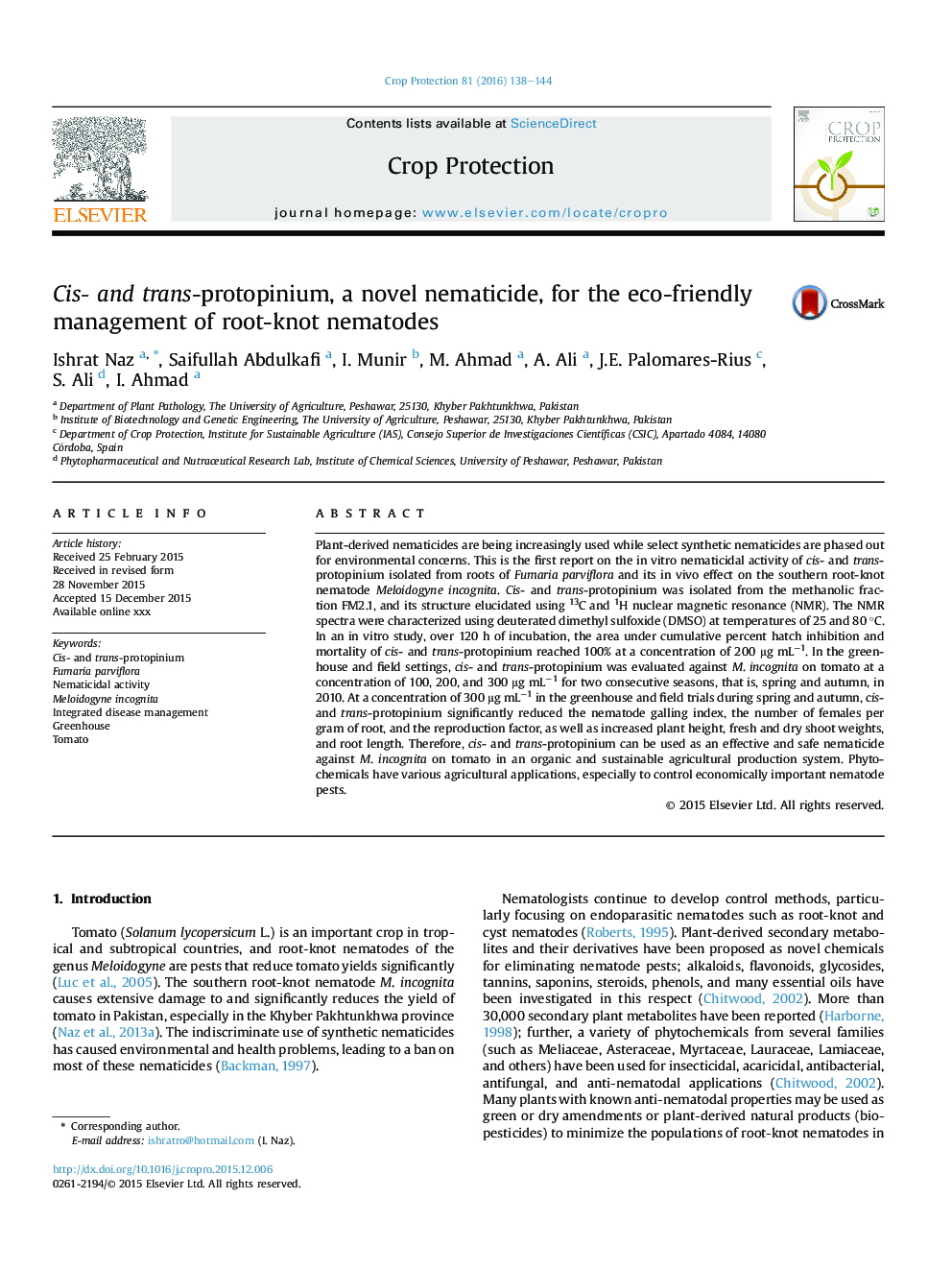| Article ID | Journal | Published Year | Pages | File Type |
|---|---|---|---|---|
| 6373281 | Crop Protection | 2016 | 7 Pages |
Abstract
Plant-derived nematicides are being increasingly used while select synthetic nematicides are phased out for environmental concerns. This is the first report on the in vitro nematicidal activity of cis- and trans-protopinium isolated from roots of Fumaria parviflora and its in vivo effect on the southern root-knot nematode Meloidogyne incognita. Cis- and trans-protopinium was isolated from the methanolic fraction FM2.1, and its structure elucidated using 13C and 1H nuclear magnetic resonance (NMR). The NMR spectra were characterized using deuterated dimethyl sulfoxide (DMSO) at temperatures of 25 and 80 °C. In an in vitro study, over 120 h of incubation, the area under cumulative percent hatch inhibition and mortality of cis- and trans-protopinium reached 100% at a concentration of 200 μg mLâ1. In the greenhouse and field settings, cis- and trans-protopinium was evaluated against M. incognita on tomato at a concentration of 100, 200, and 300 μg mLâ1 for two consecutive seasons, that is, spring and autumn, in 2010. At a concentration of 300 μg mLâ1 in the greenhouse and field trials during spring and autumn, cis- and trans-protopinium significantly reduced the nematode galling index, the number of females per gram of root, and the reproduction factor, as well as increased plant height, fresh and dry shoot weights, and root length. Therefore, cis- and trans-protopinium can be used as an effective and safe nematicide against M. incognita on tomato in an organic and sustainable agricultural production system. Phytochemicals have various agricultural applications, especially to control economically important nematode pests.
Related Topics
Life Sciences
Agricultural and Biological Sciences
Agronomy and Crop Science
Authors
Ishrat Naz, Saifullah Abdulkafi, I. Munir, M. Ahmad, A. Ali, A. Sultan, J.E. Palomares-Rius, S. Ali, I. Ahmad,
